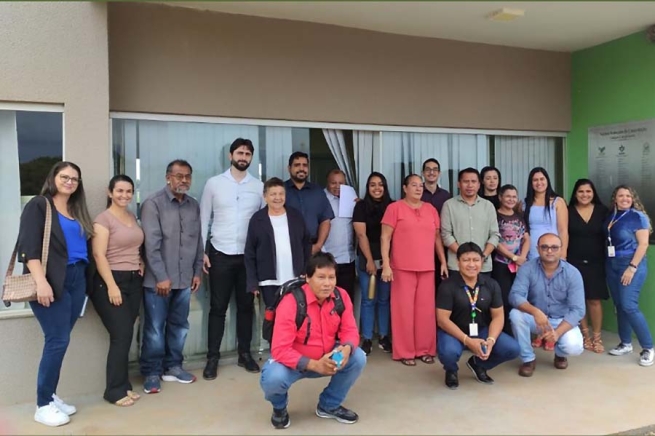BRAZIL: High infant mortality rate examined

Salesians attend meeting on high infant mortality rate among Indigenous populations
(MissionNewswire) Salesian missionaries in Campinápolis, Mato Grosso, Brazil, attended a meeting held by the local District Attorney’s Office to discuss strategies to address the high infant mortality rate in the region’s Indigenous villages. Salesians were attendance with representatives from the Public Prosecutor’s Office, the Department for Indigenous Health, the National Indian Foundation, the United Nations Children’s Fund (UNICEF) and the House of Indigenous Health.
The rate of infant mortality stands at 66 deaths per 1,000 births, according to Edemilson Canela, technical advisor to the Department of Indigenous Health. The mortality rate is caused by several factors including mobility problems (such as the lack of vehicles), the limited budget of the municipality, a shortage of health professionals, lack of supplies and problems related to basic hygiene. These factors all contribute to the struggle with hospitalizing the sick and providing health services in Indigenous areas.
Prosecutor Fabricio Miranda Mereb stressed the urgency of adopting measures to reduce the infant mortality rate. Representatives at the meeting suggested ideas including the implementation of an advanced laboratory, the structuring of an imaging network and better monitoring of pregnant women. Another possible strategy is collaboration with the Federal University of Mato Grosso to provide training to the Indigenous population on food security and liaison with relevant institutions to ensure access to public policies.
Deacon José Alves, representing the Salesians, expressed the importance of the collaboration between the Salesians and the District Attorney’s Office in Campinápolis, stressing the need to expand initiatives such as the maintenance project of artesian wells.
Deacon Alves said, “The initiative is very important because it is a meeting with various groups that deal with the health of the Xavante Indigenous people in our municipality. It is part of our missionary work to seek improvements in public health policies.”
He added, “The collaboration between the Salesians and the Public Prosecutor’s Office in the maintenance of artesian wells is a reality that, due to the great demand in other areas, must expand further.” Deacon Alves noted that this initiative allows better access to clean water and consequently an improvement in health and hygiene for all the communities concerned.
Today, there are about 10,000 Xavante people in the region, spread over more than 200 villages. These communities face extreme poverty. Salesians provide a range of services including nutritional support and training for the cultivation of land, as well as financial support for the purchase of materials, fertilizers and seeds.
###
Sources:
ANS Photo (usage permissions and guidelines must be requested from ANS)
Salesian Missions – Brazil
World Bank – Brazil





